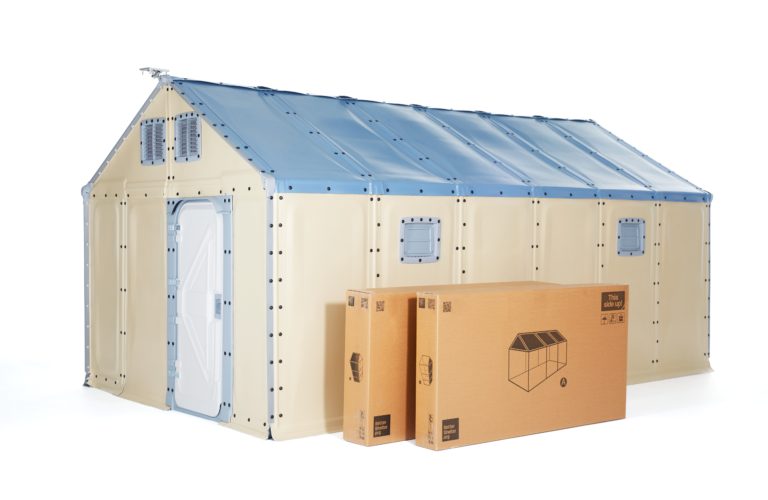Working with African partners to shelter evacuated refugees in Rwanda

In 2018, Rwanda hosted over 140,000 refugees, with half arriving from the Democratic Republic of Congo (DRC) and the other half from Burundi. By that time, the arrival of Burundian refugees had slowed, compared to 2015 when the political insecurity was at its worst.
In 2019, the Government of Rwanda, UNHCR, and the African Union (AU) agreed on the necessity of building an Emergency Transit Mechanism (EMT) in Gashora, Rwanda for refugees being evacuated from Libya. It is estimated that 480 Better Shelter Relief Housing Units (RHUs) were implemented in the Gashora EMT to facilitate the evacuation of refugees and migrants and improve resettlement opportunities.
© UNHCR/Tobin Jones
Read more about this project here.
Workers make last-minute preparations at the Gashora Emergency Transit Centre in Rwanda, ahead of the first evacuee arrivals from Libya. ; Gashora Emergency Transit Centre, originally used to host refugees fleeing Burundi, is now being readied to receive refugees being evacuated to Rwanda from detention facilities in Libya. UNHCR estimates that up to 5,000 refugees and migrants are currently being detained in Libya, where human rights groups have documented cases of rape, torture, and other crimes. The first evacuation under UNHCR’s Emergency Transit Mechanism will see 66 refugees flown out of Misrata Airport on 26 September 2019, following a Memorandum of Understanding signed by The Government of Rwanda, UNHCR and the African Union. Solutions will be sought for them, including resettlement, family reunification, settlement in Rwanda and, in some cases, return to countries where asylum had previously been granted, or to their home countries if it is safe to do so.
Workers make last-minute preparations at the Gashora Emergency Transit Centre in Rwanda, ahead of the first evacuee arrivals from Libya. ; Gashora Emergency Transit Centre, originally used to host refugees fleeing Burundi, is now being readied to receive refugees being evacuated to Rwanda from detention facilities in Libya. UNHCR estimates that up to 5,000 refugees and migrants are currently being detained in Libya, where human rights groups have documented cases of rape, torture, and other crimes. The first evacuation under UNHCR’s Emergency Transit Mechanism will see 66 refugees flown out of Misrata Airport on 26 September 2019, following a Memorandum of Understanding signed by The Government of Rwanda, UNHCR and the African Union. Solutions will be sought for them, including resettlement, family reunification, settlement in Rwanda and, in some cases, return to countries where asylum had previously been granted, or to their home countries if it is safe to do so.



